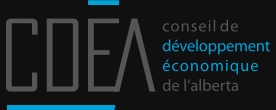Virtual Instructor-Led Training
Get certified or simply improve your skills with our virtual Instructors.
Categories
- Agile
- AI/ML
- All Courseware
- Application & Infrastructure
- Application and Infrastructure
- Business Analysis
- Cloud
- Data & Analytics
- Design Multimedia
- Developer
- DevOps
- Dynamics
- End User Application
- IT Service Management
- Leadership & Professional Development
- Modern Workplace
- Networking & Wireless
- Networking and Wireless
- Office Applications
- Programming
- Project Management
- Security
- Virtualization
- Workplace Fundamentals
Vendors
- Adobe
- Agile
- Amazon
- Business Analysis
- Business Process
- CertNexus
- Cisco
- CMMC
- CompTIA
- Crystal Reports
- CyberSecurity Professionals
- Development
- DevOps Institute
- EC-Council
- ISACA
- ISC2
- Java
- JavaScript
- Leadership & Professional Development
- Microsoft
- Microsoft Apps
- Microsoft Technical
- PeopleCert
- PMI
- Project Management
- Python
- Red Hat
- Scrum
- SHRM
- Six Sigma
- Tableau
- VMware
- Web Development
- Workplace Fundamentals
Developer
Microsoft Technical
In this 5-day course, students will learn the basics of computer programming through the use of Microsoft Visual Studio 2022 and the Visual C# and Visual Basic programming languages. The course assumes no prior programming experience and introduces the concepts needed to progress to the intermediate courses on programming, Programming in C#.
The focus will be on core programming concepts such as computer storage, data types, decision structures, and repetition by using loops. The course also covers an introduction to object-oriented programming covering classes, encapsulation, inheritance, and polymorphism. Coverage is also included around exception handling, application security, performance, and memory management.
- 5 Days Course
- Live Virtual
$2,975.00 – $2,995.00Microsoft Technical
This five- day training course teaches developers the programming skills that are required to create applications using the C# language. During their five days in the classroom, students review the basics of C# program structure, language syntax, and implementation details, and then consolidate their knowledge throughout the week as they build an application that incorporates several features of .NET. The course aims to follow the spirit of the Microsoft Official Curriculum course 20483, while bringing it completely up-to-date with the latest features of C#, .NET 6.0 and Visual Studio 2022. 55339A is the equivalent of the retired MOC Course 20483CC – Programming in C#.- 5 Days Course
- Live Virtual
$2,975.00 – $2,995.00Microsoft Technical
In this 5-day course, professional web developers will learn to develop advanced ASP.NET Core applications using .NET tools and technologies. The focus will be on coding activities that enhance the performance and scalability of the Web site application.- 5 Days Course
- Live Virtual
$2,975.00 – $2,995.00Microsoft Technical
Are your SQL Server systems secure, optimized, and ready for the demands of modern business? With over 70% of organizations relying on SQL databases to drive daily operations, the need for skilled database administrators is stronger than ever.
This instructor-led course on administering a SQL database infrastructure equips learners with practical skills to configure SQL Server security, implement backup strategies, manage access, monitor performance, and use PowerShell for automation. You’ll also learn to maintain SQL Server databases, troubleshoot performance issues, and import and export data across production environments—including Microsoft Azure SQL.
- 5 Days Course
- Live Virtual
$2,975.00 – $2,995.00Java
This course provides an in-depth treatment of the many significant Java 9 features and updates, with the goal of demonstrating how these features can be used to improve the performance and functionality of Java applications.- 4 Days Course
- Live Virtual
$2,796.00Red Hat
Control, manage, trace, monitor, and test your microservices with Red Hat OpenShift Service Mesh
Building Resilient Microservices with Istio and Red Hat OpenShift Service Mesh (DO328) is an introduction to Red Hat OpenShift Service Mesh that teaches students installation, service monitoring, service resilience, and service security with Red Hat OpenShift Service Mesh.
Red Hat OpenShift created an enterprise-ready, multitenant platform that made deploying and scaling microservice applications efficient and repeatable. But as these architectures become larger and more complex, defining how these services interact with each other is increasingly difficult. Red Hat OpenShift Service Mesh comprises three products: Istio, Jaeger, and Kiali, facilitating a zero-trust network for managing secure service interactions, providing service tracing, and creating a visual representation of communication pathways.
This course is based on Red Hat OpenShift® Container Platform 4.6 and Red Hat OpenShift Service Mesh 2.0.
- 4 Days Course
- Live Virtual
$3,210.00 – $3,525.00Red Hat
Build and Administer APIs with Red Hat 3scale API Management (DO240) is a hands-on, lab-based course that gives SREs and administrators an introduction to managing cloud-native APIs with Red Hat® 3scale API Management. This course enables developers and administrators to install, administer, monetize, secure and document your cloud-native APIs.
This course is based on Red Hat 3scale API Management 2.11.
- 4 Days Course
- Live Virtual
$3,525.00Red Hat
Cloud-native Integration with Red Hat Fuse (AD221) emphasizes learning architectural patterns and implementing integration services based on Apache Camel and OpenShift. Camel and Red Hat Fuse enable developers to create complex integrations in a simple and maintainable format. You will learn how to use the most common integration components in Camel and develop, test, and deploy integration focused applications on OpenShift. This course is based on Red Hat Fuse 7.10 and OpenShift 4.- 4 Days Course
- Live Virtual
$3,210.00 – $3,525.00CompTIA
The CompTIA Linux+ certification equips IT professionals with the foundational and advanced skills needed to manage Linux environments effectively. As Linux continues to power 96.3% of the world’s top 1 million web servers and dominates 90% of cloud infrastructure, mastering Linux administration is crucial for IT professionals seeking to advance in system administration, cybersecurity, DevOps, and cloud computing.
This course covers essential Linux concepts, including system management, security, scripting, networking, and troubleshooting, with a focus on cloud automation and containerization. The new version of CompTIA Linux+ (XK0-005) emphasizes how Linux is integral to cloud computing, DevOps, and automation, ensuring professionals can orchestrate and scale critical business processes.
- 5 Days Course
- Live Virtual
$2,475.00 – $2,495.00Red Hat
Advance your Ansible skills and develop automation that scales by applying recommended practices with the new, container focused tools from Red Hat Ansible Automation Platform
Developing Advanced Automation with Red Hat Ansible Automation Platform (DO374) is designed for automation content developers to leverage the new, container focused tools from Red Hat® Ansible Automation Platform to efficiently develop automation that can be managed by the automation controller. Learn recommended practices for automation development using reusable code, advanced playbook techniques, shared execution environments, and preparing for scalable automation with the automation content navigator.
This course is based on Red Hat Ansible Automation Platform 2.2.- 5 Days Course
- Live Virtual
$4,280.00 – $4,700.00Red Hat
Develop, scale, and troubleshoot event-driven microservice applications. Learn to use Kafka and AMQ Streams to design, develop, and test event-driven applications. Event-driven microservices scale globally, store and stream process data, and provide low-latency feedback to customers. This course is for application developers and is based on Red Hat AMQ Streams 1.8 and Red Hat OpenShift Container Platform 4.6.- 4 Days Course
- Live Virtual
$3,210.00 – $3,525.00DevOps Institute
This comprehensive course addresses testing in a DevOps environment and covers concepts such as the active use of test automation, testing earlier in the development cycle, and instilling testing skills in developers, quality assurance, security, and operational teams.
The course is relevant for every modern IT professional involved in defining or deploying a DevOps testing strategy for their organization, as test engineering is the backbone of DevOps and the primary key for successful DevOps pipeline to support digital transformation.
Actionable and exciting exercises will be used to apply the concepts covered in the course and sample documents, templates, tools, and techniques will be provided to leverage after the class. This certification positions learners to successfully complete the Continuous Testing Foundation exam.
- 2 Days Course
- Live Virtual
$1,495.00

 Abee, Alcomdale, Alpen, Athabasca, Atmore, Beamer, Bon Accord, Bondiss, Boyle, Busby, Calahoo, Calling Lake, Carbondale, Cardiff, Chisolm, Clyde, Colinton, Coronado, County of Athabasca, County of Thorhild, Dapp, Duagh, Egremont, Ellscott, Fawcett, Flatbush, Gibbons, Grassland, Halasa, Hondo, Island Lake, Island Lake South, Jarvie, Kerensky, Lamoureux, Lancaster Park, Larkspur, Legal, Sturgeon County, Westlock County, Meanook, Mearns, Mewatha Beach, Morinville, Namao, Nesto, Newbrook, Opal, Perryvale, Pibroch, Pickardville, Pine Sands, Radway, Red Water, Riviere Qui Barre, Rochester, Smith, South Baptiste, Sunset Beach, Tawatinaw, Thorhild, Villeneuve, Vimy, Westlock, Whispering Hills, White Gull
Abee, Alcomdale, Alpen, Athabasca, Atmore, Beamer, Bon Accord, Bondiss, Boyle, Busby, Calahoo, Calling Lake, Carbondale, Cardiff, Chisolm, Clyde, Colinton, Coronado, County of Athabasca, County of Thorhild, Dapp, Duagh, Egremont, Ellscott, Fawcett, Flatbush, Gibbons, Grassland, Halasa, Hondo, Island Lake, Island Lake South, Jarvie, Kerensky, Lamoureux, Lancaster Park, Larkspur, Legal, Sturgeon County, Westlock County, Meanook, Mearns, Mewatha Beach, Morinville, Namao, Nesto, Newbrook, Opal, Perryvale, Pibroch, Pickardville, Pine Sands, Radway, Red Water, Riviere Qui Barre, Rochester, Smith, South Baptiste, Sunset Beach, Tawatinaw, Thorhild, Villeneuve, Vimy, Westlock, Whispering Hills, White Gull
